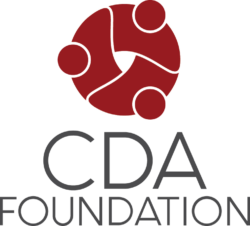Working Globally to Eliminate Hepatitis by 2030
THE PROBLEM
Today, an estimated 71 million individuals globally are infected with Hepatitis C, a curable disease that can lead to cirrhosis and liver death. Approximately 400,000 people die each year from causes related to Hep C, which can be eliminated through coordinated efforts for prevention and treatment. Unfortunately, as of 2017, only 20% of those infected patients have ever been diagnosed, and, currently, only 2% of total infected patients are being treated for the disease annually. Only 9 countries/territories are currently on track to achieve the WHO HCV elimination targets by 2030.
CDA FOUNDATION’S MISSION
CDA Foundation seeks to eliminate Hepatitis B and C globally by 2030. We provide countries/territories across the world with verified epidemiological data, disease burden and economic impact modeling, smart intervention strategies, access to affordable diagnostics and treatments, innovative financing and knowledge-sharing partnerships to eliminate this deadly disease.
WHO WE ARE
CDA Foundation (CDAF) is a non-profit organization that specializes in the study of complex and poorly-understood diseases in order to provide countries/territories with the data and information to create and implement successful elimination strategies.
Our team of epidemiologists has analyzed the impact of HBV and HCV in over 100 countries/territories. We actively collaborate with more than 650 country/territory experts—including NGOs, economists, Ministries of Health and Finance and key opinion leaders—to develop national strategies for Hepatitis elimination. We are highly collaborative, fully transparent and have over 65 peer-reviewed journal articles on hepatitis epidemiology and economic impact in publications such as The Lancet, the Journal of Viral Hepatitis, and the Journal of Medical Economics.
INITIATIVES OF CDAF
Polaris Observatory
To share its findings more broadly, CDAF founded the non-profit Polaris Observatory, an online database of epidemiological and disease-burden data for hepatitis B and C. Polaris Observatory has become the authoritative resource for epidemiological data, modeling tools, training and decision analytics to support elimination of hepatitis B and C globally by 2030.
Polaris Observatory also maintains the largest global database of HCV-related publications, including scientific articles, government reports, international agencies’ studies, theses, posters and unpublished reports. We work on the ground in direct collaboration with ministries of health, key opinion leaders (KOLs) and other country/territory experts to verify data in more than 80 of the countries/territories in which we work. We continually verify and update our models to reflect local expert input and collaboration.
Global Procurement Fund
To expand access to affordable, licensed hepatitis diagnostics and treatments, CDAF founded the non-profit Global Procurement Fund. GPRO uses volume purchasing via pooled procurement to supply member countries/territories with approved medicines and diagnostics at significantly discounted prices. GPRO is also developing innovative financing models to aid low and middle-income countries/territories fund national elimination programs.
WHAT WE DO/HOW IT WORKS
We work with countries/territories, collaborating directly with national experts, ministries of health and leading researchers to develop models for the impact of HBV and HCV’s progression over time vs. the impact of prevention, diagnosis, treatment and cure, in addition to the associated economic impact. We collaborate to publish key findings, then provide training for in-country/in-territory leaders on how to use the models and data in order to develop elimination strategies.
Our initiatives drive the core activities of our work. Through Polaris Observatory, verified epidemiological data and peer-reviewed reports form the basis for a national hepatitis elimination strategy, including populations to treat first, strategies for screening and economic impact. We use strategic partnerships and collaborations to help implement and evaluate the programs, increase public awareness of the disease, its prevention, diagnosis and treatment, and, through GPRO, improve access to quality medicines.
We regularly update country/territory data to reflect recent changes, therefore better informing policy-making and adjustment of elimination strategies. Our data and models are used by dozens of global health organizations, NGOs, Civil Societies, consultants and other organizations working to eliminate hepatitis, and are verified by local experts.
While our initiatives serve different functions, the work often overlaps across projects to serve our overall mission. Funding elimination programs is a major challenge, particularly for low and middle-income countries/territories. GPRO is developing innovative financing models that rely on catalytic funding rather than massive donations to fund elimination programs, and that work at both small and large scales. GPRO then pools orders from member countries/territories to negotiate volume discounts on medicines and diagnostics. Only manufacturers with a license from the originator-companies or those with a license from Medicines Patent Pool are considered by GPRO. Before use by GPRO, the products are authorized for use by WHO Pre-Qualification, FDA tentative approval, Stringent Regulatory Authority (SRA), or Independent Expert Review Panel (ERP).
